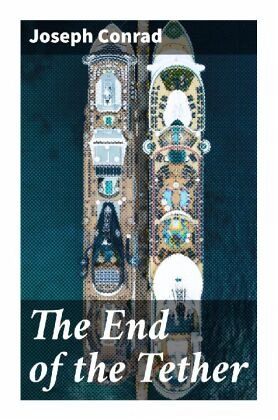
The End of the Tether
Versandkostenfrei!
Versandfertig in 6-10 Tagen
7,99 €
inkl. MwSt.

PAYBACK Punkte
4 °P sammeln!
In "The End of the Tether," Joseph Conrad explores the theme of existential despair through the lens of maritime life, a recurring motif in his works. This novella, rich in symbolism and introspection, follows the protagonist, Captain Whalley, as he grapples with the culmination of his career and the encroaching loneliness of old age. Conrad's signature prose-characterized by complex psychological depth and vivid, impressionistic language-immerses the reader in a world where the sea serves as both a literal and figurative backdrop for human struggle. The narrative, set against the decline of c...
In "The End of the Tether," Joseph Conrad explores the theme of existential despair through the lens of maritime life, a recurring motif in his works. This novella, rich in symbolism and introspection, follows the protagonist, Captain Whalley, as he grapples with the culmination of his career and the encroaching loneliness of old age. Conrad's signature prose-characterized by complex psychological depth and vivid, impressionistic language-immerses the reader in a world where the sea serves as both a literal and figurative backdrop for human struggle. The narrative, set against the decline of colonial maritime endeavors, reflects larger questions of purpose, legacy, and the inevitability of loss, making it a poignant critique of modernity and its alienating forces. Joseph Conrad, a Polish-born author who became a British citizen, had personal experiences at sea that greatly influenced his literary output. Having sailed as a merchant sailor, Conrad's firsthand knowledge of maritimelife enriched his narratives and allowed him to delve deeply into the psychologies of his characters. "The End of the Tether" is particularly semi-autobiographical, reflecting his own battles with fear, isolation, and the search for meaning in a rapidly changing world. This novella is highly recommended for readers interested in the interplay of human emotion and existential philosophy, delivered through the lens of a master storyteller. Conrad's intricate exploration of aging, ambition, and resignation makes this a compelling read for those who appreciate literary depth and reflection. Dive into this profound work to uncover the layers of human experience as depicted by one of literature's great figures.












